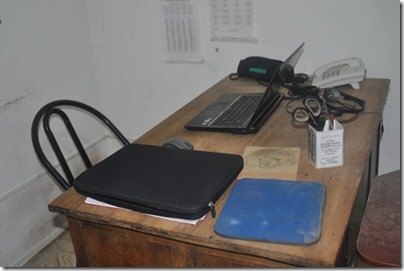Here are a few of the things that I am currently thinking about in no particular order…
From some conference notes I scribbled ages ago. Sew seeds in the lives of individual people. Currently plugging away on my 2 Timothy sermon series, (and realising that chapter one alone could occupy all four weeks if I choose to let it). I am struck that while both Jesus and Paul at various times were surrounded by multitudes of people, when it comes to who they really walked alongside, we are talking about a handful of named individual mentees. And I’m thinking that while doing big stuff is always more impressive on a human level, if we could make a real difference to three people’s lives then we probably will have have achieved more for the kingdom than any attempt to fit seventeen people into the diary before breakfast.
From the Independent 7th September. The scientist leading Britain’s response to the Ebola pandemic has launched a devastating attack on "Big Pharma", accusing drugs giants including GlaxoSmithKline (GSK), Sanofi, Merck and Pfizer of failing to manufacture a vaccine, not because it was impossible, but because there was "no business case". This of course is a totally logical outcome of allowing the market to dictate policy; it makes far better economic sense to focus on long-term drugs for rich people (Prozac, Ritalin) than it does to produce short-term medications to save the lives of people who can’t afford to pay for it. If we don’t like that, what are we prepared to do to change it?
This one. http://www.williamwilberforcetrust.org/radical-hospitality and this one. http://www.theveryworstmissionary.com/2014/06/3-tangible-ways-to-stop-sex-trafficking.html I’m pondering on radical hospitality, what a fantastic phrase. It took me a while to come to a decision for various reasons, but I’m supporting https://www.theexodusroad.com/
The Missing Billions: The UK Tax Gap estimates that 25 billion pounds is lost through tax evasion every year, of which 12 billion comes from (or rather, doesn’t come from) the 700 largest corporations. Meanwhile the UK department of work and pensions estimates that for 2013-14 The total benefits overpayments due to fraud and error across all benefits is £3.3 billion. So even if we were 100% charitable to the UK government and assume that the entire benefit loss is due to fraud rather than error, we can still see that benefit fraud is but small change compared to tax evasion. The interesting questions are; why does the UK population seem better able to tolerate a higher level of stealing from the system by the rich than by the poor. And is this phenomenon peculiar to the UK or have we hit on something about the human condition? And wherever that philosophy might take us, the practical issue is this: you can carry on buying cheap goods from those 700 corporations, or you can lament the cuts to public services. But not both.
And finally. Why is it that my new phone, which will probably make you a cup of coffee if you swiped the screen in the right direction, is completely incapable of producing anything other than a pathetic squeak when a text message arrives. My old, sadly deceased, un-smart phone had no problem with producing a variety of sounds of different lengths and volumes according to the preference of the user. I am told my new phone can be trained, but only if I go to a website, find the sound I like, download it, add it to the phone, and then select it. Personally I’m struggling to imagine how adding several extra steps of work in order to render the machine fit for the purpose it was bought, could possibly be indicative of any sort of technological progress.






